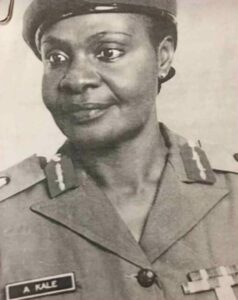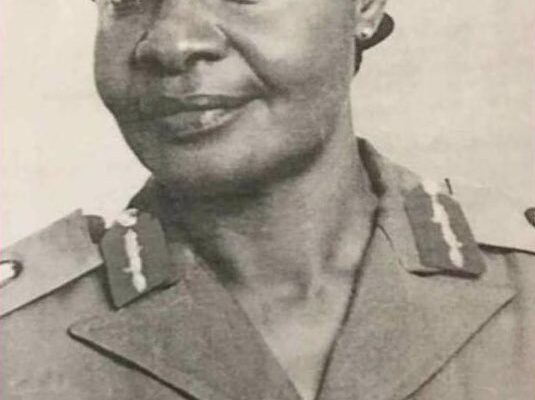
Aderonke Kale, the first female major-general in the Nigerian Army, passed away at eighty-four. In a statement on Thursday, E. O. Okafor, the president of the Alumni Association of the National Institute (AANI), announced her passing.
In addition to calling her death an “irreparable loss,” Okafor said that her family would soon make announcements regarding her funeral.
In a statement, former army spokesperson S.K. Usman described Kale as a pathfinder in the nation’s medical and military history.
“AANI and the nation will continue to remember the remarkable legacy of the iconic Major General Aderonke Kale (rtd) mni, who had been a trailblazer in Nigeria’s medical and military history. May her gentle soul rest in peace, Amen,” the statement read.
Her cause of death was not disclosed in the announcement, although it was stated that she died on Wednesday in London.
Kale received her medical training at University College, which subsequently changed its name to the University of Ibadan, and completed her speciality training in psychiatry at the University of London.
Thomas Adeoye Lambo, the first psychiatrist professor in Africa, encouraged her to study psychiatry.
Kale was born on July 31, 1939, spent a brief time working in Britain and returned to Nigeria in 1971. As she advanced through the ranks of the army, she was appointed colonel in 1990 and served as the deputy commander of the Nigerian Army Medical Corps.
At first, she served as the army’s top psychiatrist. Later, she was appointed Chief Medical Officer of the Nigerian Medical Corps, a position she held until 1996.
Aderonke had five sons, one of them being Yemi Kale, the former Statistician-General of Nigeria. She was married to Oladele Kale, a professor of social health and preventive medicine.
Major-General Kale was a trailblazer, according to a statement released by President Bola Tinubu’s media assistant Ajuri Ngelale, who also said that Major-General Kale embodied professionalism and bravery.
“Major-General Aderonke Kale was a pioneer in her field. She embodied the courage, professionalism, capacity, and resilience of the Nigerian woman. She thrived and conquered where many feared to tread. She was a towering figure; an inimitable role model,” Tinubu said.

Comments